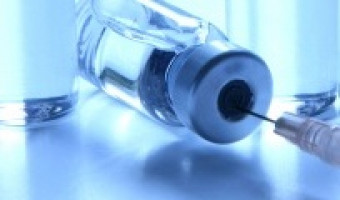
A new research perspective was published in Genes & Cancer on January 30, 2023.
In recent years, immunotherapy has finally found its place in the anti-cancer therapeutic arsenal, even becoming standard of care as first line treatment for metastatic forms.
The clinical benefit provided by checkpoint blockers such as anti-PD-1/PD-L1 in many cancers revolutionised the field.
However, too many patients remain refractory to these treatments due to weak baseline anti-cancer immunity.
There is therefore a need to boost the frequency and function of patients’ cytotoxic CD8+ cellular effectors by targeting immunogenic and tumour-restricted antigens, such as neoantigens using an efficient vaccination platform.
Dendritic cells (DC) are the most powerful immune cell subset for triggering cellular immune response.
However, autologous DC-based vaccines display several limitations, such as the lack of reproducibility and the limited number of cells that can be manufactured.
In this new research perspective, researchers Dalil Hannani, Estelle Leplus, Karine Laulagnier, Laurence Chaperot, and Joël Plumas discuss the advantages of a new therapeutic vaccine based on an allogeneic Plasmacytoid DC cell line, which is easy to produce and represents a powerful platform for priming and expanding anti-neoantigen cytotoxic CD8+ T-cells.
“NeoAgs appear attractive candidates to induce specific anti-tumour responses in cancer patients, on top of classical tumour-associated antigens and in association with ICIs. A potent dendritic cell product such as PDC*neo represents a valuable platform to develop NeoAg-based cancer vaccines. We strongly believe that this new delivery technology based on potent PDC*line cells can induce a robust anti-NeoAg CD8+ T-cell immune response for the benefit of patients and could reshape the landscape of NeoAg-based cancer vaccines.”
Article: Leveraging a powerful allogeneic dendritic cell line towards neoantigen-based cancer vaccines
Source: Impact Journals LLC
We are an independent charity and are not backed by a large company or society. We raise every penny ourselves to improve the standards of cancer care through education. You can help us continue our work to address inequalities in cancer care by making a donation.
Any donation, however small, contributes directly towards the costs of creating and sharing free oncology education.
Together we can get better outcomes for patients by tackling global inequalities in access to the results of cancer research.
Thank you for your support.